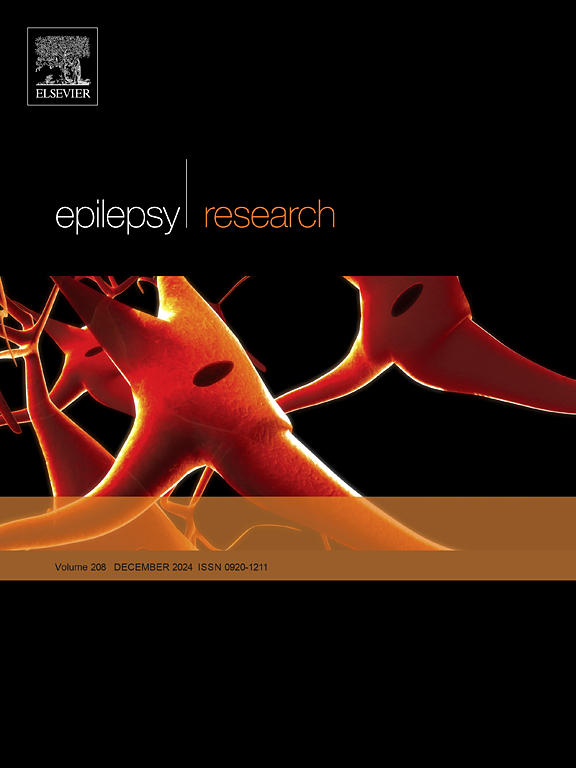中国癫痫患者手术满意度及影响因素分析
IF 2
4区 医学
Q3 CLINICAL NEUROLOGY
引用次数: 0
摘要
目的了解中国癫痫患者对手术的满意度,并探讨影响患者手术满意度的因素。方法纳入至少三个月前接受手术干预的spwe。收集患者的人口统计学和病史资料,并采用中文版《癫痫手术满意度问卷》(C-ESSQ-19)对患者进行手术满意度评估。根据满意度中位数为88.1分,将患者分为“高满意度组”和“低满意度组”。通过单因素分析和logistic回归分析确定影响满意度的因素。结果共有234名pwe参与,C-ESSQ-19评分中位数为88.1。单变量分析确定了9个潜在的影响因素:就业状况、癫痫持续时间、手术类型、癫痫控制、抗癫痫药物(asm)的使用、癫痫严重程度、癫痫相关残疾、抑郁和生活质量。在最终的logistic回归模型中,癫痫发作控制良好(优势比:9.367-10.343;P <; 0.05)和生活质量(优势比:1.100;P <; 0.001)成为与满意度相关的重要独立因素。结论中国老年外科医生对手术结果的满意度较高。术后生活质量的改善和良好的癫痫控制与更高的满意度密切相关。本文章由计算机程序翻译,如有差异,请以英文原文为准。
Surgical satisfaction and influencing factors in patients with epilepsy in China
Objective
This study aims to evaluate the level of surgical satisfaction among patients with epilepsy (PWEs) in China and to identify factors influencing their satisfaction.
Methods
PWEs who underwent surgical intervention at least three months prior were included. Data on demographics and medical history were collected, and their satisfaction with surgery was assessed using the Chinese version of the 19-item Epilepsy Surgery Satisfaction Questionnaire (C-ESSQ-19). Based on a median satisfaction score of 88.1, patients were categorized into a "high satisfaction group" and a "low satisfaction group". Factors influencing satisfaction were identified through univariate analysis and logistic regression.
Results
A total of 234 PWEs participated, with a median C-ESSQ-19 score of 88.1. Univariate analysis identified nine potential influencing factors: employment status, duration of epilepsy, type of surgery, Seizure control, use of anti-seizure medications (ASMs), severity of epilepsy, seizure-related disability, depression, and quality of life. In the final logistic regression model, good seizure control (odds ratio: 9.367–10.343; P < 0.05) and quality of life (odds ratio: 1.100; P < 0.001) emerged as significant independent factors associated with satisfaction.
Conclusions
PWEs in China reported high levels of satisfaction with surgical outcomes. Improved postoperative quality of life and good seizure control were strongly linked to greater satisfaction.
求助全文
通过发布文献求助,成功后即可免费获取论文全文。
去求助
来源期刊

Epilepsy Research
医学-临床神经学
CiteScore
0.10
自引率
4.50%
发文量
143
审稿时长
62 days
期刊介绍:
Epilepsy Research provides for publication of high quality articles in both basic and clinical epilepsy research, with a special emphasis on translational research that ultimately relates to epilepsy as a human condition. The journal is intended to provide a forum for reporting the best and most rigorous epilepsy research from all disciplines ranging from biophysics and molecular biology to epidemiological and psychosocial research. As such the journal will publish original papers relevant to epilepsy from any scientific discipline and also studies of a multidisciplinary nature. Clinical and experimental research papers adopting fresh conceptual approaches to the study of epilepsy and its treatment are encouraged. The overriding criteria for publication are novelty, significant clinical or experimental relevance, and interest to a multidisciplinary audience in the broad arena of epilepsy. Review articles focused on any topic of epilepsy research will also be considered, but only if they present an exceptionally clear synthesis of current knowledge and future directions of a research area, based on a critical assessment of the available data or on hypotheses that are likely to stimulate more critical thinking and further advances in an area of epilepsy research.
 求助内容:
求助内容: 应助结果提醒方式:
应助结果提醒方式:


